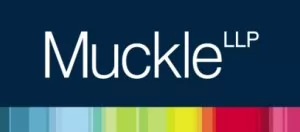As part of the changes around the replacement of the statutory disciplinary and dismissal procedures (DDP), a new Code of Practice on discipline and grievance has been launched for consultation by Acas (the Advisory, Conciliation and Arbitration Service).
The new code aims to encourage businesses and individuals to resolve disputes internally, saving both time and money. Pat McFadden, Minister for Employment Relations said "The new Code is a key element in the Government's plans to streamline and simplify the dispute resolution system to the benefit of employers and employees and complement the removal of statutory measures by establishing flexible, principles-based guidance to help resolve disputes early."
Implications
The aim of the Code is for workplace disputes to be resolved informally wherever possible, Fairness and transparency will be encouraged with disciplinary matters and grievances being dealt with in accordance with developed rules and procedures, Employment Tribunals are intended to be seen as a last resort.
Will this work?
Similar statements have been made in the past, before the introduction of DDPs and have failed to do what was intended.
Previous provisions were overly complicated and procedural, so whether the new Code improves matters, still remains to be seen.
What this means to you?
In the meantime, employers must continue to follow the much maligned DDP and statutory grievance procedures where they apply to avoid dismissals being classified as automatically unfair and to avoid any compensation awarded being subject to an uplift of up to 50%.
The Employment Appeals Tribunal in the recent case of Dr A Ward v University of Essex, provided a useful summary of the principles in relation to statutory grievances for the interim:
- The employee is not required to set out the complaint in technical, legal, detail.
- The grievance must simply be set out in writing but there is great flexibility as to the form of the grievance.
- The document containing the grievance may also serve a different purpose or raise additional complaints.
- There is no requirement that the written document makes it plain that it is a grievance or that the claimant intends to invoke a grievance procedure.
- The grievance must relate to the subsequent claim but this does not mean that the wording of the grievance and any claim form be identical.
- A grievance can be written by the claimant's solicitor.
- It is immaterial whether the employer is given the opportunity to respond and it is also irrelevant whether or not the employee takes the complaint further.
-
Whilst the current law is changed over and the new Code of Practice is formulated employers need to be extremely careful to ensure that any complaints raised by employees or ex-employees are dealt with appropriately - the safest course of action is to deal fully with grievances under the current statutory provisions.
- It is immaterial whether the employer is given the opportunity to respond and it is also irrelevant whether or not the employee takes the complaint further.
Whilst the current law is changed over and the new Code of Practice is formulated employers need to be extremely careful to ensure that any complaints raised by employees or ex-employees are dealt with appropriately - the safest course of action is to deal fully with grievances under the current statutory provisions.
The content of this article is intended to provide a general guide to the subject matter. Specialist advice should be sought about your specific circumstances.


